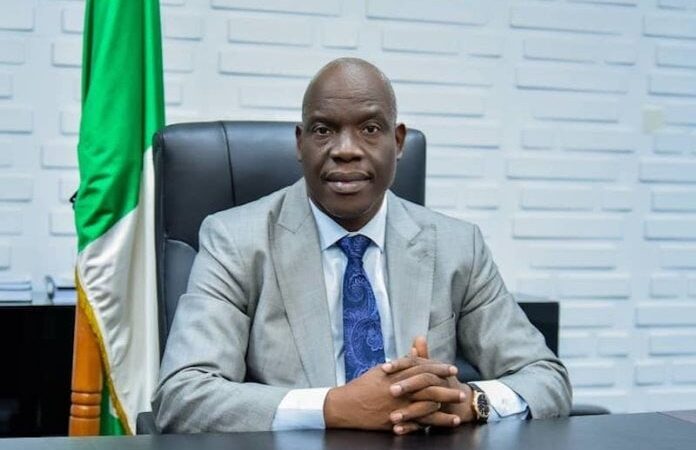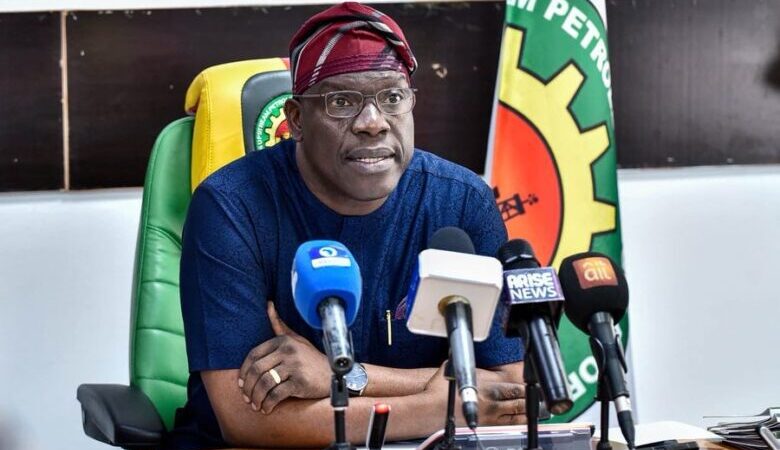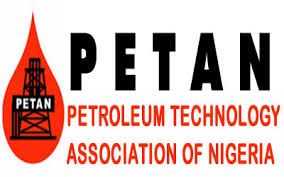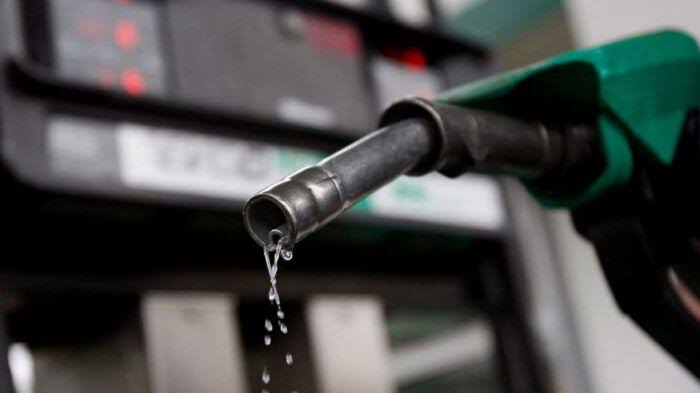Queues return as fuel scarcity hits Abuja, five states
 Queues return as fuel scarcity hits Abuja, five states Many filling stations were closed in Abuja and about five other states on Wednesday as the scarcity of Premium Motor Spirit, popularly called petrol caused heavy queues at the few outlets that dispensed the product.
Queues return as fuel scarcity hits Abuja, five states Many filling stations were closed in Abuja and about five other states on Wednesday as the scarcity of Premium Motor Spirit, popularly called petrol caused heavy queues at the few outlets that dispensed the product.
Thousands of commuters in the Federal Capital Territory, Nasarawa, Niger, Gombe, Sokoto and Anambra states were left stranded at various bus stops due to the scarcity of PMS required by transporters to run their vehicles.
This led to a hike in transport fares in the affected states, as the few transporters who had petrol raised their rates.
It was gathered that the scarcity was due to a shortage in the supply of PMS to the nation’s capital and other states, as this led to the closure of filling stations in the affected areas.
Oil marketers, however, stated that they would hold a meeting with the management of the retail subsidiary of the Nigerian National Petroleum Company Limited today (Thursday) to know the cause of the shortage and how to tackle it.
Hundreds of motorists besieged the Conoil and Total filling stations that sold petrol in front of the corporate headquarters of NNPC in Abuja on Wednesday.
This led to vehicular traffic on the roads leading to NNPC headquarters and other surrounding companies in the Central Business District of Abuja.
Several filling stations in Zuba, Niger State, including NNPC, AYM Shafa, among others, were closed on Wednesday for lack of petrol to dispense.
Similarly, the NNPC outlet on Arab Road, Kubwa, Abuja, had no product to sell. Many other outlets along the Kubwa-Zuba expressway were also shut. In Nyanya, Nasarawa State, many filling stations were closed.
Their inability to operate piled pressure on the few stations that had PMS on Wednesday, leading to massive queues by motorists at these outlets.
Oil marketers, however, stated that the reason for the shortage in the supply of PMS to Abuja and neighbouring states was being investigated, adding that a meeting would be held on the matter today (Thursday).
“It is obvious that there is supply shortage in Abuja and other states that are close to the FCT (Federal Capital Territory),” the National Secretary, Independent Petroleum Marketers Association of Nigeria, Chief John Kekeocha, told our correspondent.
He added, “This is the reason why many filling stations in these areas are not selling PMS, which, of course, has led to the serious queues you see in the few ones that are dispensing the product. I cannot tell you the reason for this supply shortage now.
“But we are meeting with NNPC Regal tomorrow (Thursday), and this is going to form part of our discussions. The matter is being looked into right now, and we hope to find a solution to it during the meeting.”
Earlier, the National President, IPMAN, Abubakar Maigandi, told our correspondent that the queues for petrol in many states would be a thing of the past when the Dangote Petroleum Refinery starts pumping out PMS to the domestic market.
But when asked whether the refinery had briefed marketers about when it would start pumping out the product, Maigandi replied, “We don’t know the time. But since he said he would start it, I know that he will do that.
“So we are still waiting and we know that once he starts releasing petrol to the domestic market, this issue of fuel scarcity and queues will become a thing of the past.”
His position was corroborated by the IPMAN National Public Relations Officer, Chief Ukadike Chinedu, who also expressed hope that the Port Harcourt Refining Company would start producing refined petroleum products very soon.
Commuters stranded
Thousands of commuters going to their various destinations were stranded at different motor parks in Anambra State on Wednesday due to the unavailability of transportation vehicles because of the shutting down of petrol stations across the state.
Most petrol stations in the major cities of Awka, Onitsha, Nnewi, Umunze, Ekwulobia and other environs remained shut and were not dispensing fuel on Wednesday morning.
As a result of this, the few vehicles plying the road increased the transportation fares by over 200 per cent while commuters who struggled to board them were made to pay the high rates.
For instance, commercial transporters charged N500 for a journey that used to be N200, while a journey of N500 was charged between N1,200 to N1,500.
The development caused many commuters to start trekking to their various destinations while others waited at the parks.
Our correspondent also observed that many offices and business premises did not open till around 10:30 am because their employees had yet to report for duty.
The reason why the petrol stations were closed could not be ascertained immediately. But the development generated a lot of mixed feelings among the public.
Some people believed that the petrol stations were on strike, others were of the opinion that it was a deliberate attempt by the marketers to increase the pump price of the commodity.
A tricycle operator plying the Onitsha axis, simply identified as Tochukwu, said, “I bought fuel from the black market for as high as N1,350/litre this morning in order to work, after we discovered that filling stations did not open. Some of my colleagues went to Asaba in Delta State to get the product and that is why transportation fares are high this morning.
“We don’t really know why the filling stations are shut, but we are hearing that is like they are in a meeting somewhere in Awka. We have experienced this kind of situation before and when they came back from their meeting that day, they hiked the pump price of petrol. It’s likely to be the same situation, we are watching as events unfold.”
A commuter at Awka, Chinwe Okeke, said, “I have been standing at the Regina Caelis Bus Stop for over two hours waiting to board a vehicle to UNIZIK, but it has been difficult. The vehicles that are coming have been charging very exorbitantly, I don’t know what is really happening.”
When contacted on the development, the Anambra State Commissioner for Petroleum and Mineral Resources, Anthony Ifeanya, said, “There is no cause for alarm and commuters and motorists should not panic.
“It’s likely that the petrol marketers are in a meeting and whenever they are having such meeting, shutting of petrol stations is a way of compelling every member to attend the meeting. Their meeting usually starts from morning till noon.”
It was also observed that the sudden fare hike also affected both interstate and intrastate movements.
Lagos queues
One of our correspondents observed that the NNPC filling station along Cele expressway in Lagos had long queues on Wednesday due to the fact that the pump price was selling at a lower rate of N585/litre when compared to other filling stations.
But the AP filling station located at Barracks along Chemist Bus Stop in Lagos was not selling petrol.
However, there were no queues at Jezco filling station at Oja-Oba, along Pako Bus Stop in Lagos because the station was selling at N650/litre.
The Northwest filling station along the Gbagada expressway had long queues as the pump price at this station was N610/litre.
Heavy queues were seen at the NNPC filling station along the Ogudu expressway with the station selling at N585/litre.
N710/litre in Ogun
Residents of Abeokuta, Ogun State capital now buy a litre of petrol for between N650 and N710/litre.
One of our correspondents observed that while many of the filling stations were not selling fuel on Wednesday, the few independent filling stations that were attending to customers sold the product at between N660 to N710/litre.
However, the NNPC mega station along Abiola Way dispensed a litre for N580 but the queues here were very long.
Eternal Oil along Kobape road with a fairly large crowd sold petrol for N660/litre while others such as KH filling station, Adigbe, among others, sold theirs at N700/litre and above.
Scarcity hits Gombe
Fuel scarcity has hit most filling stations in the Gombe State metropolis.
Some motorists told our correspondent in the state that they suspected sabotage, as fuel was sold for between N760 to N800/litre depending on the station. The worst hit areas are the hinterlands.
Bako Hussain, a motorist, said, “We know that it is a sort of plan work by the filling stations. How can one open today and tomorrow the next one will open and the one that sold yesterday will not open.”
Also speaking, Hajara Bala, said “It is hard to get fuel in the state as the queues are building across filling stations. I think it’s artificial scarcity. I see no reason why we will have money and still wait with your N760 or more depending on the station.”
Motorists in Sokoto State also decried the continued rise in the price of petrol as the product rose to N830/litre on Wednesday.
Findings by our correspondent in Sokoto on Wednesday evening showed that most of the filling stations that opened for business in the morning had closed their outlets before 4 pm, making the product more scarce for consumers.
Almost all the big marketers including NNPC, AA Rano, Shafa, among others, were not dispensing the product on Wednesday evening.
The few filling stations that dispensed the product on Wednesday evening sold it at between N800 and N830/litre and still had long queues.
A motorist, Abdul Ahmad, who spoke to our correspondent, said, “How do you explain a filling station which sells fuel at the rate of N770/litre in the morning, only for you to come back in the afternoon and same people now sell at N820/litre.
“This is very bad and we should stop doing this to ourselves in this country.”
NNPC stays mute
Meanwhile, efforts to get the NNPC to explain reasons for the queues and the fuel supply shortage in states were unsuccessful.
NNPC is currently the sole importer of petrol into Nigeria, as other marketers stopped importing the commodity due to their inability to access adequate foreign exchange required for PMS importation.
NNPC’s spokesperson, Olufemi Soneye, did not answer calls to his phone when contacted on the matter.
He also did not respond to a text message sent to him to provide reasons for the queues, up till when this report was filed.
Additional reports by Bankole Taiwo, Chima Azubuike and Animasahun Salman







